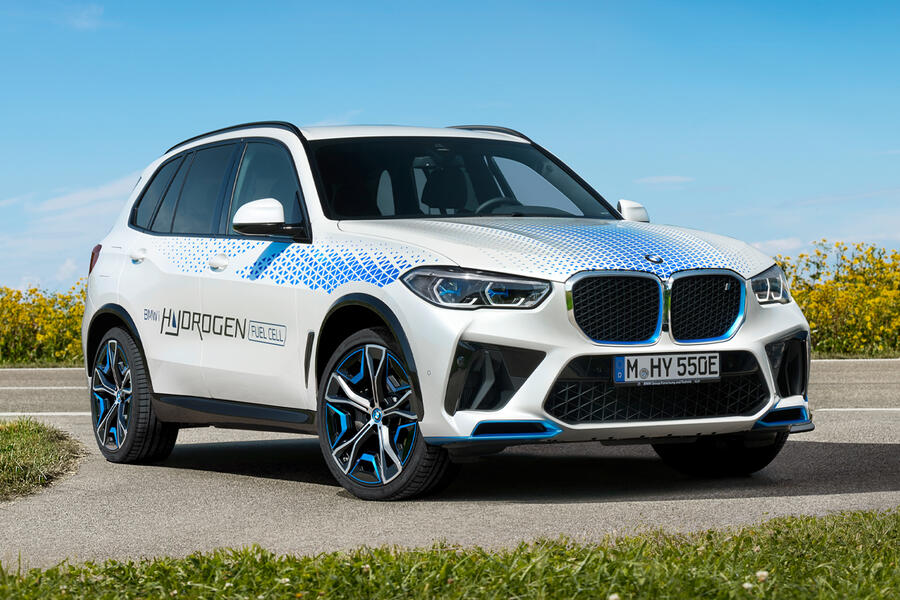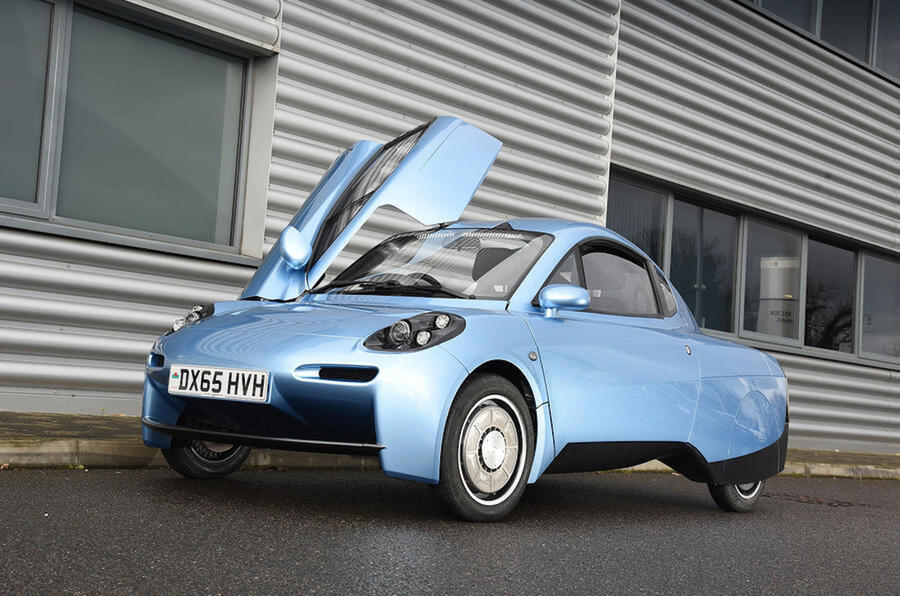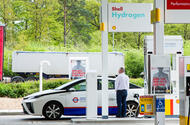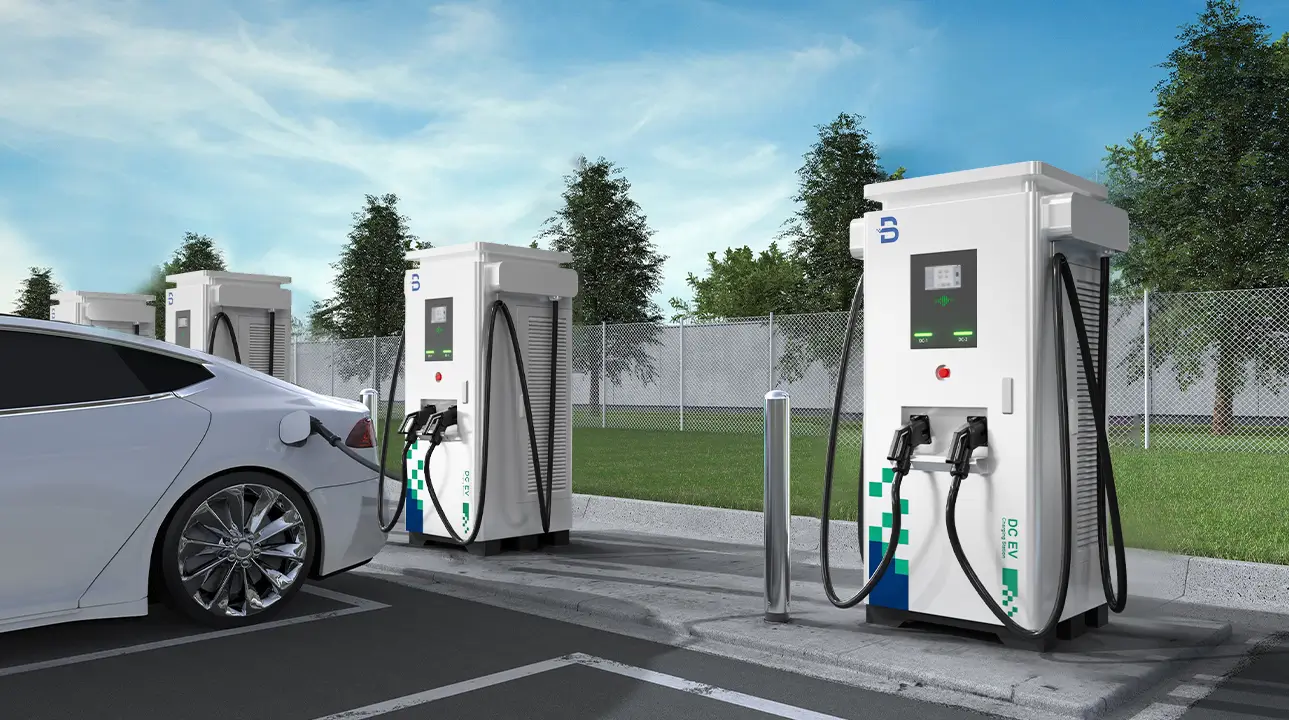Eco-friendly hydrogen financial state might turn into a $2.5 trillion business, states Belgium-dependent Hydrogen Council
Closure of critical FCEV filling stations will come in stark distinction to Chinese approach
Information emerged not too long ago that Toyota and Hyundai system to offer non-public fuel-cell cars in China for the initial time.
There wasn’t considerably press ballyhoo, and Toyota does not even feel to have issued a press launch, possibly due to the fact the start of the Toyota Mirai and Hyundai Nexo is pretty modest, to begin with all-around 50 vehicles for every year.
Guiding the scenes, nevertheless, there has been a major regulatory modify from the Chinese government, with the environmentally friendly gentle given for the carbonfibre Style IV fuel tanks applied in the Mirai and Nexo, possibly opening the world’s major car or truck industry to FCEVs.
“Previously, autos containing these tanks could not be homologated for sale, but the restriction is now lifted,” Toyota instructed Autocar.
The information in China is the exact reverse to the pattern in the Uk, wherever Shell has just announced much more closures of hydrogen pumps at its provider stations, declaring the prototype devices desires updating.
Crucial web sites on the M25 and M40 be part of the M4 site as closed. Shell will set up replacements instead in which major vans can entry them. Just 11 hydrogen pumps will remain in the Uk.
In quite a few ways, this just isn’t stunning. In recent many years, the United kingdom authorities has been regular in encouraging hydrogen use for major vehicles, buses, off-highway cars, aircraft, domestic fuel heating and steel production, the so-named “hard to abate” sectors, at the similar time losing fascination in non-public automobiles.

It is uncomplicated to see why this has occurred, governments and makers are sinking trillions into battery-electrical motor vehicles, crowding out FCEVs.
Yet globally and in the Uk, the environmentally friendly hydrogen financial system is on the verge of creating into a $2.5 trillion (£2.2 trillion) business utilizing 30 million individuals by 2050, if forecasts by the Belgium-dependent Hydrogen Council (HC) verify appropriate.
The HC states up to $150 billion (£134 billion) of investment decision will be essential by 2030 to get this new business into its stride, which includes a new buying and selling method to guarantee a international movement of hydrogen.
The inexperienced prize is 80GT of CO2 emissions abated globally right until 2050.
With the likely of this massive new marketplace dawning, undoubtedly it tends to make perception to hedge for opportunity difficulties in battery-electrical technological know-how with a parallel field of fuel cell automobiles? This would be a extended-phrase vision, earlier 2030 in the direction of 2040 and 2050 – in motor vehicle-industry conditions, just two solution cycles absent.
BMW and its chairman Oliver Zipse certainly imagine so, providing FCEVs an enthusiastic new impetus with a fleet of iX5 Hydrogen models owing for start in 2023 and encouraging words and phrases to journalists at the the latest start of the Rolls-Royce Spectre BEV.

“After the electric car or truck, which has been heading on for 10 yrs and scaling up quickly, the next trend will be hydrogen,” Zipse stated. “When it’s more scaleable, hydrogen will be the hippest detail to travel.”
Nonetheless even the most recent Uk govt approach paper from the Division for Business enterprise, Power and Industrial Tactic, released last August, rarely mentions non-public gasoline cell cars in its 120 internet pages.
This ambivalence has disappointed some in the automobile industry, and as one government with extended experience in the discipline told Autocar: “There have been 3 major experiences going back to the mid-2000s on the Uk hydrogen system, and non-public cars have been just about ignored in all of them. There are really influential folks at a higher amount who unquestionably really don’t like hydrogen fuel autos.”
This constant detrimental messaging has surely had an influence, and Autocar understands that FCEV pioneers like Toyota are in the Uk concentrating on the major types, irrespective of world wide fears that the extended-expression mass roll-out of BEV autos in the tens of hundreds of thousands poses strategic queries around very long-time period client affordability, availability and stability of mineral supplies and production footprint.
Nonetheless traditionally, the Uk governing administration has supported personal gasoline cell cars and trucks and the refuelling marketplace.
7 decades ago, Riversimple, Hugo Spowers’ vision for a reduced-carbon footprint ecosystem for creating and providing the £370-for every-month Rasa FCEV, was proven thanks to £4m of govt funding, £2m from the United kingdom.
Since then, the Welsh govt has made a potential strength method built close to hydrogen, with the Rasa an integral component.

Spowers, a passionate advocate for fuel cells in personal cars, is in no question that environmentally friendly hydrogen is a video game-changer. “Policy need to focus inexperienced hydrogen on the uncomplicated-to-abate sectors, like transportation,” he reported. “It can make no perception in this transition to aim on the hard-to-abate sectors, like steel. Let us proactively go for the very low-hanging fruit to displace carbon as fast as feasible, in transport.”
Bramble, an Imperial Faculty spin-off whose printed-circuitboard automotive fuel mobile is environment-major, is yet another British isles authorities backed automotive FCEV enterprise, acquiring acquired about £1m of the Sophisticated Propulsion Centre’s £25m Scale-Up Readiness Validation fund, to establish a production line for mild-car or truck gas cells. Testing is ongoing at Mahle Powertrain’s website in Northampton.
In the meantime, Sheffield-based ITM Ability, whose gear underpins the United kingdom community of FCEV-refuelling stations from which Shell is retreating, is the world’s most significant company of proton-trade electrolysers.
Johnson-Matthey and Ceres Electric power, with its solid-oxide gasoline cell, are both equally phrase leaders in gas-mobile technologies and are equally establishing manufacturing strategies for gigafactories to construct gas cells at scale.
But no matter if the Uk normally takes edge of these know-how leaders and builds a significant-scale fuel-mobile producing field is continue to in the harmony, it would seem.
It was introduced up in March 2021 at a Household of Lords Science and Technological innovation committee by Professor Nigel Brandon of Imperial Higher education, a founder of Ceres Electrical power. “The British isles is not at the gigafactory scale in gas cells, and we need to get there if we are to see the charge profit,” he reported. “But the British isles is perfectly placed in having a bedrock to establish on, if that is what we opt for to do.”
Hydrogen carries on to be a large section of the programs for England’s regional financial-development Engine composition. The Midlands Engine on your own reckons it could have 19% of England’s hydrogen auto and infrastructure work opportunities by 2030.

The chemical marketplace, in the form of the Uk Hydrogen and Gasoline Mobile Association (UKH&FCA), is in the vanguard of this march toward a new field of hydrogen gasoline, the “energy vector”, which it describes as a “huge challenge”.
Hydrogen earlier has been a item for industrial processing, these kinds of as fertiliser, for illustration, but fuel-mobile-grade hydrogen has to be of a much higher purity, requiring new production criteria and procedures.
On hydrogen use in personal automobiles, CEO Celia Greaves is very clear: “The concern is the Division for Transport has experienced no curiosity in supporting hydrogen fuel autos and there is usually an embedded ambivalence to hydrogen as an vitality supply for private automobiles. That’s an industry-broad recognised situation.”
However, although fuel-cell automobile and infrastructure investment is stagnating, the United kingdom is on the verge of a new eco-friendly-hydrogen revolution, posing the query: does the British isles governing administration definitely have a joined-up enterprise and industrial technique for inexperienced hydrogen?
An answer might soon occur from the influential Carbon Have confidence in, whose tactic papers information government policy, and whose chair, Baroness Brown, is comprehended to have co-authored the business department’s Hydrogen approach reviews.
Even with listing more than 100 electricity professionals on its world-wide-web web-site, the Carbon Trust could not provide Autocar with a remark for this story, “as we aren’t in a placement to speak about hydrogen vehicles just but we are at the moment developing out this capacity”.

Specified that hydrogen gasoline mobile vehicles have been a detail because the late 1990s, does the Carbon Trust’s cryptic response suggest a U-change on light-weight-car or truck fuel cells is coming?
Definitely governing administration assistance and marketplace financial investment is pouring into eco-friendly and blue hydrogen (see panel), with approximately 30 main manufacturing/distribution initiatives proposed, having the potential to generate 100,000 jobs by 2050. This yr, £240m has been dedicated as a very first action of the Internet Zero Hydrogen Fund.
In reality, by 2030, the govt has established a concentrate on of 10GW of hydrogen generation, 5GW eco-friendly and 5GW blue.
Responding to this strategic press, BP final 7 days submitted ideas for an 80MW green hydrogen plant – with potential to broaden to 500MW – to open up on Teesside in 2025 and come to be the UK’s 1st key hydrogen-transport hub, adequate to electricity 10,000 heavy vans. Yet still there was no mention of personal fuel-cell cars and trucks.
Environmentally friendly hydrogen may perhaps not have all the solutions for each non-public vehicle, but fuel-mobile cars can effortlessly coexist with BEVs. The problem is no matter whether the federal government will make it possible for them to.
You can find a threat that in the vital force to scale-up a BEV industry, the Uk is in hazard of disregarding gas-cell cars and trucks, in spite of getting perfectly-placed to place a fleet on the street and share the hard work of pivoting absent from ICE on the way to 2050 web-zero carbon.
In reality, the authorities itself recognises that “hydrogen has a essential purpose to engage in in our transition to net-zero”.
Perhaps the British isles ought to acquire China’s small new actions and interest in hydrogen and gasoline-mobile automobiles as a nudge to look once again at the chances for green hydrogen to electric power private vehicles.
What is eco-friendly hydrogen?
Green hydrogen is hydrogen generated by electrolysis employing eco-friendly electric power from renewable resources, these types of as wind and photo voltaic. Each MJ of power fees .1g CO2 equal, which is substantially cleaner than other processes like gray hydrogen (reformed from natural gas), which fees at 84g CO2 equivalent.
Blue hydrogen, which is also aspect of the Uk government’s lengthy-phrase hydrogen method, is grey hydrogen with the CO2 made offset by Carbon Seize Below Sea (CCUS). This rates 16g CO2 equal. The authorities has pledged £1bn to develop CCUS.







More Stories
The World’s Only FIA Endurance Racing Minivan
McLaren, Lockheed Will Collaborate On “Futuristic” Supercar Design
2023 Mercedes-AMG GT to be crowned by 831bhp plug-in hybrid